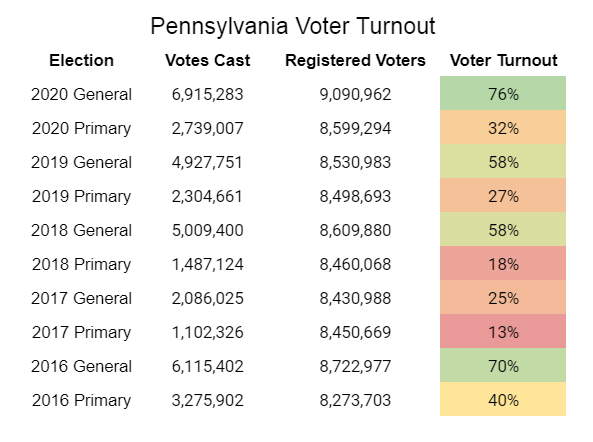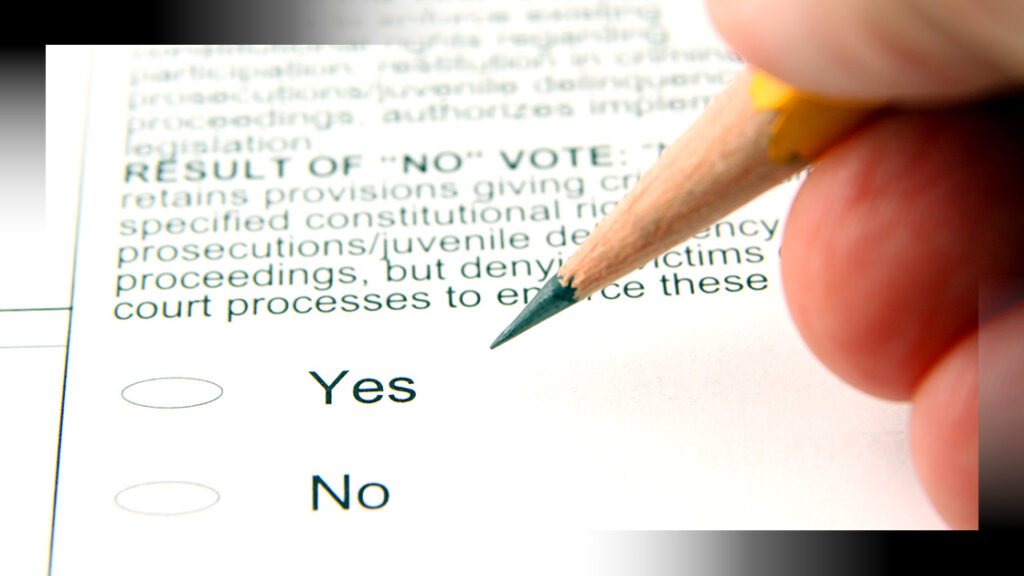Every four years in the fall, many people dust off their soap boxes and megaphones to talk about the importance of voting. My soap box rarely gets dusty, however, as I am on it twice a year reminding everyone who will listen (and many who won’t) that our democracy is only as strong as our will to be involved. If this past year has taught us anything, it should be that the fate of the country should not hang in the balance of a presidential election. The less we pay attention to local elections, the more weight falls to the higher offices, and in our winner-take-all system, the more power resides at the top.
People who know me know that I have my doubts about the benefits of big government. I believe that the president (D or R) knows very little about what matters to the residents of Pittsburgh, for example. I think the governor of Pennsylvania, and – even better – the mayor of Pittsburgh have a better sense of what Pittsburghers want. I believe that residents of Pennsylvania, and California, and Idaho, and Connecticut have very different priorities, and that it is very difficult for legislators to make decisions at the federal level that adequately reflect the wide range of priorities and concerns held in different parts of the country.
By the People
The way our democracy was constructed, voters have the ability to provide input at the local, state, and federal levels. We have a system of checks and balances, and our elected officials are supposed to represent the concerns of those who elected them. However, that system falls apart if people don’t indicate what their priorities are (most effectively done through voting, but also through contacting our local representatives). If we don’t vote or get involved, our views remain unknown, and laws are made on our behalf without our input.

Votes cast: [1]; Registered voters: [2]
There are myriad reasons people give for not voting: some people physically can’t make it to the polls because of transportation issues or conflicts with work, some people feel their vote won’t make a difference or don’t understand the importance of the items on the ballot, sometimes (especially in primary elections) there aren’t enough people running to create any kind of contest. My ballot this May, for example, has three races, and only one of them has more candidates than slots available.
Another reason for low voter turnout in the spring is that Pennsylvania does not have open primaries: only democrats and republicans can vote in primary elections, and they can only vote for candidates in their own parties. Although I identify as a fiscally conservative, socially liberal, small-government libertarian, the issue with voting in the primaries is one of the reasons I am still registered as a republican. Some of my family and closest friends are registered as third parties, so they don’t even look at candidates until the fall, and I don’t even bother to engage them in political discussions this early in the year. Until now.
This May in Pennsylvania, there are several ballot measures relating to the governor’s emergency declaration powers, protections against discrimination, and funding eligibility for emergency responders. My first thought was that it was absurd to exclude the roughly one million third-party-registered voters who might have an opinion on these topics. I was understandably thrilled when I learned that ANY registered voter can vote on these ballot measures in the May 18 primary election.

Image and source credit: [3]
The Importance of Informed Decisions
Over the next few weeks, I will be actively reminding Pennsylvanians to go vote and make their voices heard on these four ballot questions, BUT ballot questions are rarely what they seem. They are often worded in ways that obscure or even misconstrue the issues. For example, in 2016 a ballot measure asked Pennsylvania residents if they supported a retirement age of 75 for judges. A majority of Pennsylvanians voted in favor of a retirement age for judges but didn’t realize that there already was one, and that it was 70. The Department of State originally worded the question to ask about support for raising the retirement age from 70 to 75, but the GOP-controlled legislature rejected that language and replaced it with what was ultimately found on the ballot.[4]
The retirement age question is an extreme example, to be sure, and both sides of the aisle have been accused of biased language over the years. In the time I have been researching ballot measures, I don’t believe I have seen one yet that is worded in a straightforward manner. In 2019, Pennsylvania voters overwhelmingly supported Marsy’s Law, a set of crime victims protections. On the surface, who could argue against greater protections for crime victims? However, some of these protections eroded aspects of due process for the accused. The ACLU immediately filed an injunction to prevent a certification of the vote,[5] and it was tossed out by the PA Commonwealth Court this past January on the basis that it was too broad.[6]
When voting, it is important to remember that ballot measures are often written with an agenda in mind, and because of that the language can be vague, confusing, or misleading to try to get a certain result. I have made uninformed, split-second decisions in the voting booth and later regretted not doing my homework – most of us have. In evaluating ballot measures, it is always good to understand 1) what laws are currently in effect, 2) how the proposed change will affect existing law, and 3) who stands to benefit and lose out from the proposed change. To that end, I will do my best to present information on each of these four measures in this and next week’s blog posts. The bulk of the information below is taken directly from Vote411,[7] which is run by the League of Women Voters.

Image credit: [8]
Ballot Question 1: Proposed Constitutional Amendment – Article III, Section 9
This question deals with the termination or extension of disaster emergency declarations and stems from the conflict between Governor Wolf and the state legislature this past year regarding COVID-19 emergency declarations (e.g. stay-at-home orders, school and business closures, etc.). The amendment would change existing law to give the General Assembly the power to terminate or extend a disaster emergency declaration made by the governor through a simple majority vote.
In 2020, the Legislature passed a resolution to end Governor Wolf’s emergency declaration related to COVID-19. He vetoed the resolution, and the Legislature fell short of the two-thirds majority necessary to overturn Wolf’s veto. This constitutional amendment has been proposed in response to those events to give more power to the Legislature, but there is a risk that it will increase the impact of partisan politics during an emergency situation and undermine the current system of checks and balances. Presently, only four states require a legislative vote to extend or terminate a governor’s emergency declarations.
- Voting YES means you agree to give the Legislature the power to take away the Governor’s existing authority to make disaster emergency declarations and coordinate with relevant Pennsylvania agencies.
- Voting NO means you disagree with giving the Legislature the power to override the Governor’s existing authority in making disaster emergency declarations.
Ballot Question 2: Proposed Constitutional Amendment – Article IV
This question deals with disaster emergency declaration and management, and it also stems from the conflicts between Governor Wolf and the state legislature over the COVID-19 response. This amendment would change the length of a disaster emergency declaration so it would expire after 21 days, regardless of the severity of the emergency. After the declaration has expired, the governor would not be able to declare a new disaster emergency unless the General Assembly passed a resolution allowing him to.
Current law sets an emergency declaration at 90 days, and the Legislature does not have the ability to end an emergency declaration by the governor unless 1) the governor doesn’t veto their resolution, or 2) the Legislature has a two-thirds majority to override the veto. This amendment would grant the Legislature the sole power to manage a disaster, but it will also create an additional hurdle of convening a 253-member body every 21 days during disaster conditions to continue to extend the disaster emergency declaration.
- Voting YES means that you agree to change the existing law to limit the length of a governor’s disaster declaration (no matter the severity) from 90 days to 21 days; and that the governor’s authority to act in emergency and disaster situations will be granted to the legislature.
- Voting NO means that you disagree with changing the existing law, and that the governor will retain authority to act in emergency and disaster situations.
~
Next week’s post will continue with questions 3 and 4, as well as information on candidates that may be on your ballot (depending on your party registration). In the meantime, you can get a sneak peek at this year’s election spreadsheet (still in progress.)
Thanks for reading!
[1] https://www.electionreturns.pa.gov/
[2] https://www.dos.pa.gov/VotingElections/OtherServicesEvents/VotingElectionStatistics/Pages/VotingElectionStatistics.aspx
[3] https://www.businessinsider.com/capitol-siege-did-not-vote-in-2020-election-report-2021-2
[4] https://www.inquirer.com/philly/news/politics/20160721_Suit__Wording_of_Pa__referendum_on_judges__retirement_age__deceitful_.html
[5] https://whyy.org/articles/pa-voters-approve-marsys-law-by-wide-margin-but-legal-challenge-could-block-it/
[6] https://apnews.com/article/state-courts-constitutions-pennsylvania-voting-rights-courts-ef9a3a6df6ddb1edd8d8b0125060bf1a
[8] https://www.ncsl.org/research/elections-and-campaigns/voters-pass-majority-of-2020-ballot-measure-issues-magazine20201.aspx
0 Comments